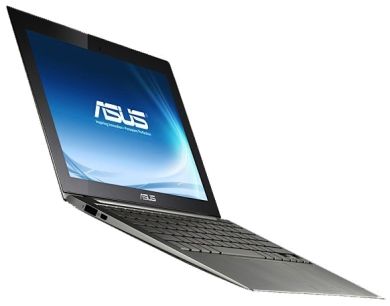

Intel is gearing up to launch the first of its much-anticipated “Ivy Bridge” Core chips later this month.
And now the chip maker is beginning an advertising and marketing campaign, which is designed to raise public awareness about Ultrabooks.
The Ultrabook campaign, which was announced 4 April, will be the biggest marketing push in almost a decade, when the giant chip maker launched its Centrino mobile processor platform in 2003.
The Ultrabook push will come under the umbrella ad line “A New Era of Computing.”
“This is not a campaign where we’re talking about the microprocessor or Intel the company,” Sellers said in a statement. “Instead, we’re giving a cinematic and epic feel to how Intel-inspired Ultrabook systems are ushering in a new era of computing and making everything else seem like ancient history.”
The campaign – which David Dickstein, a media relations manager for Intel, said in a blog post is valued at “hundreds of millions of dollars” – comes less than a year after Intel executives first raised the idea of Ultrabooks at the Computex 2011 show. The systems – which are meant to compete with Apple’s popular MacBook Air and the growing number of tablets that are hitting the market – are designed to be extremely thin and light, offering all the capabilities of traditional notebooks while including features found in tablets, such as long battery life, instant-on and, eventually, touch-screen capabilities.
Several systems makers, from Lenovo and Acer to Asus and Hewlett-Packard, already have launched Ultrabooks powered by Intel’s current Sandy Bridge Core processors. However, Intel officials have pointed to the upcoming 22-nanometer Ivy Bridge chips – which promise greater performance, power efficiency and graphics than their predecessors – as the key technology for pushing Ultrabooks into the mainstream. The first of the Ivy Bridge chips are expected to hit the market in late April.
Ultrabooks have caught the eye of analysts and the media, but some have questioned whether OEMs can build them to Intel’s specifications and keep the cost at less than $1,000 (£630). Some that are selling now are priced as low as $800 (£504), but many are well above $1,000.
Intel blogger Becky Emmett, in a 26 March blog post on the company’s ChipShot Website, said there are currently 26 Ultrabook models on the market, 10 more systems that have been announced and more than 75 additional ones that are coming later in 2012.
Roger Kay, principal analyst with Endpoint Technologies Associates, said in an email to eWEEK that thin and light is the direction notebooks – and most computing devices – are heading. With that in mind, Intel officials are going to “try to control the experience associated with its trademark as much as possible.”
At the same time, both Advanced Micro Devices and ARM Holdings – whose low-power chip designs currently run in most smartphones and tablets – also are looking to compete in the light notebook category, Kay said.
“The struggle turns on keyboard versus glass more than anything else,” he said. “A simple cover can turn a tablet into a clamshell, so long as you don’t want a keyboard, and even then there are external keyboards. So, it’s really Intel and AMD against the ARM camp in the high mobility space. Outcome TBD, but ARM is holding a lot of high cards now.”
Intel is taking a multipronged approach in its marketing campaign. The first three television ads will be released at different times through May, and an interactive site is being offered via intel.com/ultrabook. The interactive site will launch 13 April in the United States and in 50 other countries later this month, according to Intel.
How well do you know your tablets? Take our quiz.
All Cybertrucks manufactured between November 2023 and February 2025 recalled over trim that can fall…
As Musk guts US federal agencies, SEC issues summons over Elon's failure to disclose ownership…
Moonshot project Taara spun out of Google, uses lasers and not satellites to provide internet…
Pebble creator launches two new PebbleOS-based smartwatches with 30-day battery life, e-ink screens after OS…
Amazon loses appeal in Luxembourg's administrative court over 746m euro GDPR fine related to use…
Nvidia, xAI to participate in project backed by BlackRock, Microsoft to invest $100bn in AI…